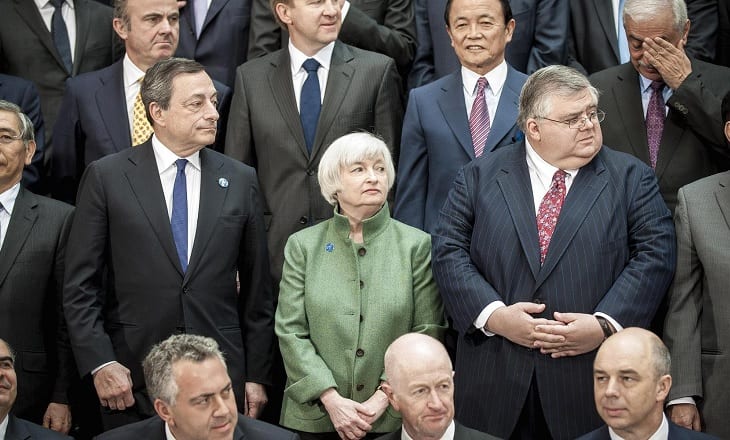The following article was written by Ipek Ozkardeskaya, Senior Market Analyst at FCA regulated broker London Capital Group Holdings plc (LON:LCG).
ECB just winked to the hawks

Ipek Ozkardeskaya, LCG
The European Central Bank (ECB) will not discuss about what to do with its Quantitative Easing (QE) program until the end of summer. President Mario Draghi said that the European recovery is ‘robust’. This comment has been perceived as a meaningful wink to the hawks, who have lifted the euro to a two-year high against the greenback.
The ECB will certainly unwind its asset purchases program starting from September, yet has no incitement to announce it before the decision date, given that the pricing happens almost instantaneously across the markets and a premature announcement would jeopardize the performance of the QE program.
A reasonable next move would be reducing the size of monthly purchases, yet keeping the duration flexible.
BoJ confidently dovish
The Bank of Japan (BoJ) declared war against the rising JGB yields. Unlike the ECB, the BoJ does not have a fixed budget to be spent on asset purchases. The BoJ can accelerate and decelerate its monthly purchases in order to control the yield curve. In this respect, the BoJ speeded up the 3 -5 year maturity JGB purchases in an attempt to fight back the rise in Japanese yields during the recent sell-off in global sovereign bonds.
At the latest monetary policy meeting, the Japanese policymakers maintained the benchmark interest rate unchanged at -0.10% level and extended the timeline for reaching the 2% inflation target back to the fiscal year 2019.
Despite tightening expectations on several major central banks’ monetary policies, the BoJ is not willing to step away from its clear dovish stance. Hence, the BoJ’s dovish divergence should keep the yen-bears on top of the game.
The pound and inflation
The Bank of England (BoE) could take a breather amid the inflation in the UK eased to 2.6% in June, down from the critical 2.9%. Although the latest inflation report may not mark the end of the inflationary pressures, it gave credit to the BoE Governor Mark Carney, who has been anticipating a slowdown in consumer price inflation due to the decline in real wages.
The BoE is willing to keep the monetary conditions as loose as possible to support the British economy through the challenging Brexit period. This being said, the swings in the pound’s mood are much dependent on the economic data, and particularly the inflation.
Fed’s portfolio normalisation plans
The Federal Reserve is expected to maintain the interest rates unchanged at next week’s meeting. Yet the Fed’s intentions regarding the balance sheet normalisation plans will be the main highlight of the meeting. Investors want to have a clearer insight on the timing and the size of an eventual portfolio shrinkage.
At her latest speech before the Congress, the Fed Chair Janet Yellen explicitly mentioned her worries regarding the Trump administration’s inability to bring the ‘major’ fiscal reforms to life. The political shenanigans surrounding Donald Trump’s presidency keep the US government’s agenda busy for the moment. With limited action on the fiscal policy, the Fed has less pressure to tighten the monetary conditions to find a suitable equilibrium between the fiscal and the monetary policies.
This being said, the 75 basis point increase in rates have apparently not given the result that the Fed was expecting in terms of tightening. Therefore, we do not rule out the possibility of an eventual rate hike in December, even though the probability of a year-end rate hike has fallen to 42%.
